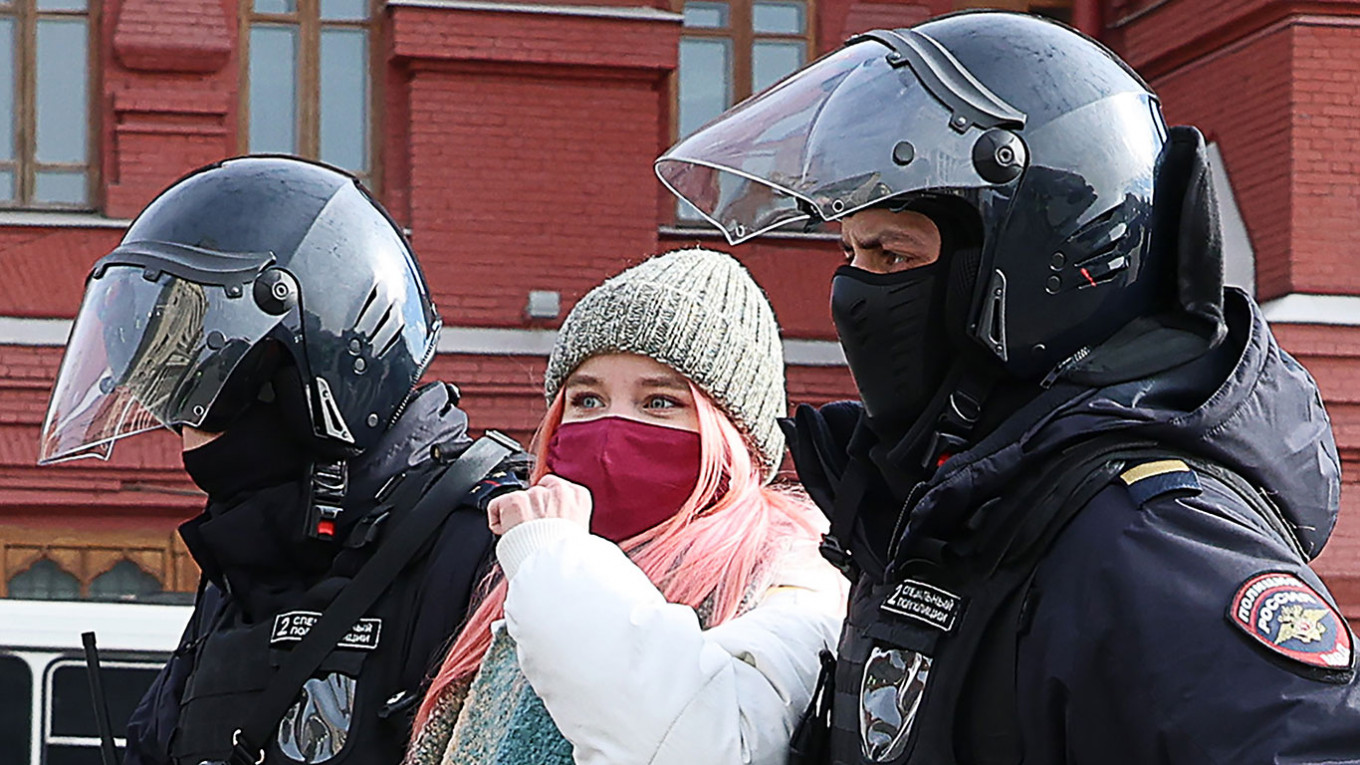Collective guilt and responsibility are major issues for young Russian people since the start of Russia’s so-called “special military operation” in Ukraine and harsh backlash from the international community.
Many began to question if they should share responsibility for the state’s wrongdoings.
The Moscow Times spoke to almost three dozen young people from Russia about how they perceive their national and ethnic identity and how they assign responsibility for Russia’s actions.
“I feel pain for Russians. I see very clearly that we are infinitely stupid and infinitely unhappy people,” Vasya, 22, told The Moscow Times. He works at one of Moscow’s art centers.
He went on to say that the irreversible damage Russia has done to the Ukrainian people “is a fact that doesn't wash off.”
As of March 9, the UN refugee agency UNHCR has estimated the total number of refugees from Ukraine at 2.1 to 2.2 million.
Reuters reported 1,170 civilians in Ukraine have been killed in the besieged eastern city of Mariupol alone since the beginning of the Russian invasion.
Vasya, like many others, is willing to share the responsibility, but he doesn’t associate it with his ethnic identity: “I identify with Russia, but I don’t think of it in terms of my ethnicity.”
In conversations with young people, they made a clear distinction between the culture and people on one side and the state and ethnicity on the other. Not many thought of themselves as ethnically Russian (russky). Instead they described themselves as Russian citizens (rossiyanin).
“I strongly associate myself with Russia, but it’s important to separate the state and Russia,” Sonya, 24, a product manager at an IT-company told The Moscow Times. After the start of the “special military operation” in Ukraine she decided to move to Israel.
“I am very upset that I have to go. I don't feel like an Israeli. I am a Russian citizen and always will be.”
When asked about her feelings, Sonya said she felt “no individual guilt” but sadness that her participation in protests didn't affect anything and that “what’s going on in Ukraine is so horrible.”
Lana, 24, who works as an artist and a designer, said something similar. “I will not hide that I’m from Russia when I’m abroad. I did the best that I could,” she said.
Out of 32 young people The Moscow Times interviewed, 21 are active in the anti-war movement both inside Russia and abroad. For many interviewees, “national guilt” is overshadowed by the individual responsibility they are willing to take.
Fyodor is 24 years old and he specializes in Russian literature. He grew up in southern Russia, where cultural and blood connections with both Belarus and Ukraine are tighter than anywhere else in the country.
When the war began on Feb. 24, Fyodor was ashamed. But he quickly started volunteering and “was no longer ashamed, only angry.” Anger at authorities and supporters of the “military operation” was expressed by many anti-war activists we spoke with.
“I don’t bear the same collective responsibility as people who paint the letter ‘Z’ on their things,” says Mark Pekarev, 24, a teacher at a leading Russian university.
The letter “Z” is a newly adopted symbol of support for the Russian military after it was seen painted on the side of tanks heading to Ukraine.
Mark has been actively involved in opposition protests since 2019. He has decided to stay in Russia and continue voicing his anti-military position.
“I won’t be surprised if no Ukrainian will shake my hand for many decades, but at least I know that I didn’t silently stand by or actively participate in the war.”
Some names have been changed to protect the speakers.
A Message from The Moscow Times:
Dear readers,
We are facing unprecedented challenges. Russia's Prosecutor General's Office has designated The Moscow Times as an "undesirable" organization, criminalizing our work and putting our staff at risk of prosecution. This follows our earlier unjust labeling as a "foreign agent."
These actions are direct attempts to silence independent journalism in Russia. The authorities claim our work "discredits the decisions of the Russian leadership." We see things differently: we strive to provide accurate, unbiased reporting on Russia.
We, the journalists of The Moscow Times, refuse to be silenced. But to continue our work, we need your help.
Your support, no matter how small, makes a world of difference. If you can, please support us monthly starting from just $2. It's quick to set up, and every contribution makes a significant impact.
By supporting The Moscow Times, you're defending open, independent journalism in the face of repression. Thank you for standing with us.
Remind me later.






